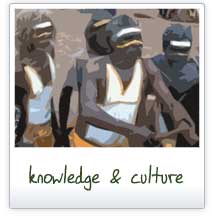 knowledge & culture
knowledge & culture
In the following audio and video extracts learners and trainers talk about the mutual importance of Indigenous and non-Indigenous knowledge and cultures. Indigenous learners balance the responsibility of maintaining and strengthening Indigenous knowledge and culture with developing skills that provide opportunities for participation and progression in employment and training. Similarly, trainers have the responsibility of incorporating and valuing Indigenous perspectives in their training while building underpinning and discipline knowledge and skills.
- What the learners say
- What the trainers say
Ingrid
 Ingrid is a first-year-out teacher working at a school in an Indigenous community. Prior to completing a Bachelor of Education Ingrid worked for 13 years as an Aboriginal Islander Education Worker.
Ingrid is a first-year-out teacher working at a school in an Indigenous community. Prior to completing a Bachelor of Education Ingrid worked for 13 years as an Aboriginal Islander Education Worker.
Ingrid talks about both ways learning
Don
 Don is a qualified mechanic. He has worked in this role for over 30 years in an Indigenous community.
Don is a qualified mechanic. He has worked in this role for over 30 years in an Indigenous community.
Cecilia talks about culture & western learning
Heleana
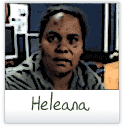 Heleana is a trainee teacher and is enrolled in a Bachelor of Teaching and Learning. She previously worked in the areas of land management and eco-cultural tourism. She has completed the Certificates II and III in Spoken and Written English and is completing her final units in a tertiary preparation course concurrently with her teaching studies.
Heleana is a trainee teacher and is enrolled in a Bachelor of Teaching and Learning. She previously worked in the areas of land management and eco-cultural tourism. She has completed the Certificates II and III in Spoken and Written English and is completing her final units in a tertiary preparation course concurrently with her teaching studies.
Heleana talks about living in two worlds
Heleana talks about Western vs Indigenous approaches to education
Heleana talks about the right time for training
Heleana talks about learning from the learners
Heleana talks about respecting culture
Joel
 Joel is a work-based apprentice at a regional university campus. He is currently enrolled in Certificate III in Business and is working in an office environment. He has previously completed Certificate III in Music and Certificate in Commercial Cookery
Joel is a work-based apprentice at a regional university campus. He is currently enrolled in Certificate III in Business and is working in an office environment. He has previously completed Certificate III in Music and Certificate in Commercial Cookery
Joel talks about his experience of a segregated curriculum in his high school education
Joel talks about support & inclusive curricula
Joel talks about both ways learning
Joel talks about Indigenous cooking
Joel talks about culture & curriculum
Joel talks about cultural awareness & relationships
Victor
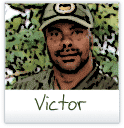 Victor is a ranger supervisor in an Indigenous community. He has previously completed Certificate III in Conservation and Land Management.
Victor is a ranger supervisor in an Indigenous community. He has previously completed Certificate III in Conservation and Land Management.
Victor talks about cultural learning to keep culture strong
Victor talks about both ways learning
Victor talks about coping with a cyclone as an example of Indigenous knowledge
Victor talks about training in the bush
Victor talks about the importance of both-ways learning
Ivan
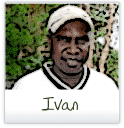 Ivan is a ranger in an Indigenous community. He is currently enrolled in Certificate II in Conservation and Land Management.
Ivan is a ranger in an Indigenous community. He is currently enrolled in Certificate II in Conservation and Land Management.
Ivan talks about both ways learning
Ivan talks about developing reading & writing skills
Marita
 Marita is enrolled in Certificate II in Spoken and Written English. She lives in an Indigenous community and periodically travels to a regional centre where her course is delivered in intensive study blocks.
Marita is enrolled in Certificate II in Spoken and Written English. She lives in an Indigenous community and periodically travels to a regional centre where her course is delivered in intensive study blocks.
Marita talks about the importance of ceremony
Michael
 Michael is a VET lecturer in Conservation & Land Management. He has extensive experience working with and training Indigenous rangers.
Michael is a VET lecturer in Conservation & Land Management. He has extensive experience working with and training Indigenous rangers.
Michael talks about recognising existing skills
Michael talks about teaching new concepts
Debbie
 Debbie is the workplace supervisor and trainer in a textile art business in an Indigenous community.
Debbie is the workplace supervisor and trainer in a textile art business in an Indigenous community.
Debbie talks about two way learning
Andree
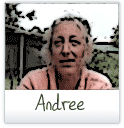 Andree is the workplace supervisor and trainer in horticulture at the nursery in an Indigenous community.
Andree is the workplace supervisor and trainer in horticulture at the nursery in an Indigenous community.
Andree talks about two way learning
Fred
 Fred is a VET trainer. He delivers Certificate I in Work Preparation in Indigenous communities. Most training is conducted in the workplace.
Fred is a VET trainer. He delivers Certificate I in Work Preparation in Indigenous communities. Most training is conducted in the workplace.
Fred talks about cultural awareness
Allen
 Allen is a musician and music producer as well as a VET trainer in music. He has worked and taught in Indigenous communities for many years.
Allen is a musician and music producer as well as a VET trainer in music. He has worked and taught in Indigenous communities for many years.
Allen talks about navigating the cultural landscape
Barry
 Barry is a VET trainer in Indigenous Education Work. He delivers training in the workplace in an Indigenous community.
Barry is a VET trainer in Indigenous Education Work. He delivers training in the workplace in an Indigenous community.
Barry talks about both ways learning
Barry talks about how living conditions impact on culture and on training
Strategies for trainers:
Express interest and openness in learning about indigenous ways of life, living and culture through your words and actions
Make sure your body language reflects your words
Develop your own cultural awareness and provide opportunities for learners to do so as well by accessing formal training and engaging in informal cross cultural encounters
Integrate cultural awareness into your course, and provide open sessions where questions to do with culture and identity can be discussed and debated
Respect the views and cultural differences of others
Incorporate strategies to build the underpinning skills of English language, literacy and numeracy throughout training. These core skills are fundamental for learners to acquire knowledge in vocational education and training courses
Acknowledge indigenous knowledge and perspectives in your training alongside western knowledge and skills
Set up reverse learning situations which allow learners to teach the trainer and each other what they know about a topic
Find out about ceremonies and cultural practices that may impact on your students. Be aware that these may affect participation and attendance in the workplace and in training
Develop and teach inclusive curricula that provide opportunities for all learners, Indigenous and non-Indigenous, to find out about Indigenous history, culture, ideas, practices and issues
Find out about the points of difference in your subject or discipline area between non-Indigenous approaches and Indigenous traditional and contemporary ways of knowing about that discipline. Be prepared to pinpoint and discuss those points of difference
Find out what the learners already know and build on their existing knowledge and skills
Select training locations carefully in recognition that knowledge can be situated in a place and that the location of training can assist in the creation of knowledge and understanding
Convey knew concepts and knowledge using examples and analogies
Incorporate teamwork activities as a key part of your teaching and learning program
Use different media to get your message across. If one approach doesn't work, try something else
When working with learners older than yourself, show respect by asking their permission to sit with them and to start training with them
